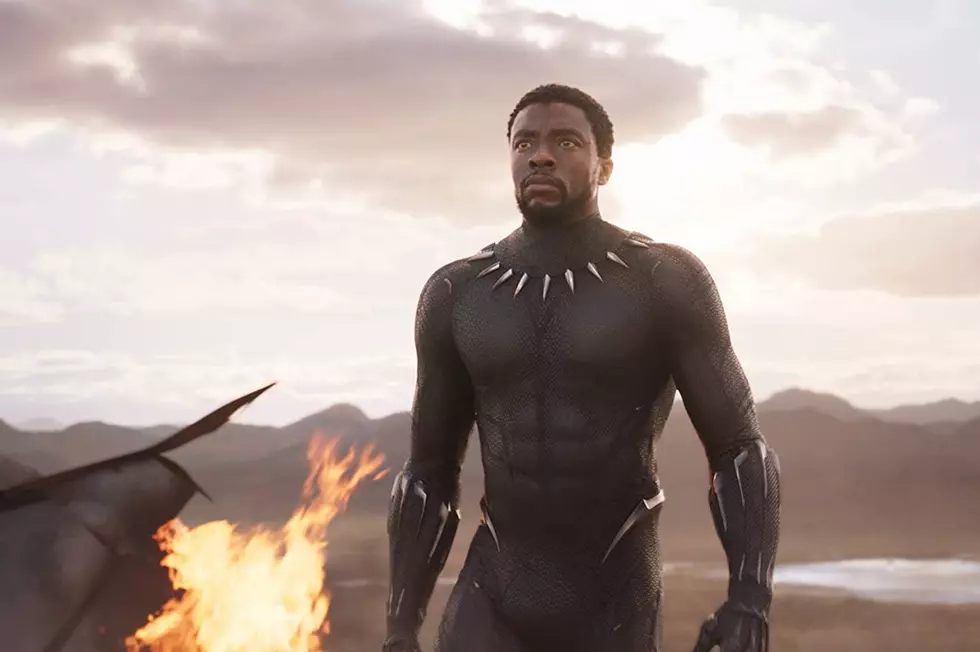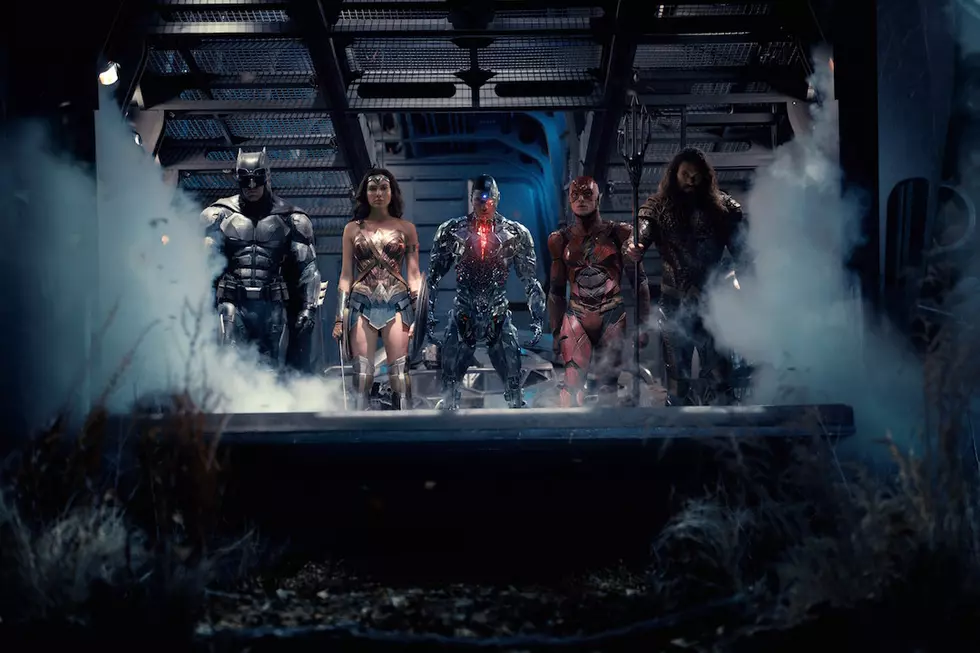
The Case for Better Black Supervillians
Black superheroes have undergone a necessary evolution over the last 50 years. Luke Cage was originally a jive-talking hero-for-hire, but he's become an altruistic mainstay of the Marvel heroes. Storm leads the X-Men, while Black Panther makes decisions that gravely affect the state of the universe. The growth and variation of black superheroes has brought them out of the shadows.
But we're still lacking the same sort of evolution and diversification for great black supervillains. Off the top of your head how many can you name? And of those, how many are iconic?
Perhaps the one that's most likely to come to mind is Black Manta, Aquaman's ill-tempered foe, and one of the most prominent black supervillains in comics; but even he may raise a few eyebrows.
Black Manta's helmet and suit offer complete ambiguity. Truth is, as readers we don't know who's under the mask; we can only assume. And that's what most readers did, until Manta's famous helmet reveal in 1993 confirmed why his name is truly Black Manta. But Manta's first appearance was in 1967's Aquaman #35; his black heritage was kept a secret from readers for 26 years! And even after the reveal, he's rarely seen outside his glossy black latex number.
Marvel's most familiar black villains include Black Mariah (Mariah Dillard, for those familiar with the Luke Cage Netflix series), the Black Panther villain Man-Ape, and the albino Spider-Man villain Tombstone, all of whom fall into the "thug" or "streetwise" cliches that characterized many of the early black heroes. The X-Men foe Apocalypse is perhaps Marvel's most notable example of a black supervillain, but like Manta, his blackness is obscured. He's Egyptian, but his blue skin and armored costume make him appear more alien than human.
While black superheroes have made vast strides to escape these stereotypes, villains are still pigeonholed as mob bosses, gangsters, and heavies, boasting brute strength and fighting acumen rather than wit or intelligence. These characters follow lowbrow henchman archetypes, instead of occupying mastermind roles like Lex Luthor, Magneto, or Loki. The few villains that subvert these stereotypes, like the Marvel villain Doctor Positron, or the animated Young Justice version of Queen Bee, are woefully underused and barely seen.
I love villains. They're beautifully flawed characters. Sometimes they represent extreme versions of worldviews we're familiar with. For example, Magneto knows the horrors of oppression, and his conviction for the wellbeing of mutantkind is believable and at times admirable. Sometimes they're appealing because of their wickedness; the Joker is as dangerous as they come, but he's explosive, memorable, and charismatically sadistic, allowing readers to explore their inner darkness.
The most memorable villains tend to share an ability to inspire, often matched with a desire to reshape the world, whether their goals lie in global conquest, the ascension of their people, or simply creating chaos and havoc. The best villains are leaders, not henchmen; black villains are not given the opportunity to lead.
As black excellence has become a more prominent feature of comic book narratives, it should play a role in creating fantastic, terrifying, yet lovable black villains as well.
There's an obvious danger here. No-one wants a black villain blundering through a sea of tired tropes and racial ignorance. But there's an opportunity to include people of color in comics in a way that isn't being pursued. Many viewers of Superman: The Animated Series read its version of Lex Luthor as black; why isn't there an actual rich black villainous mastermind who can give Lex Luthor a run for his money? Where are the black villains with the godlike ambitions of Doctor Doom?
Villains shape and inspire the world in their own way. It's about time our villains reflected the world they want to conquer.
More From ComicsAlliance









